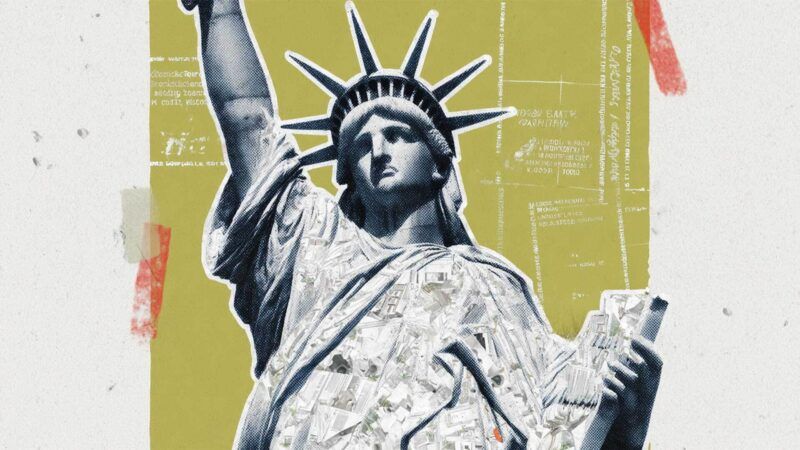Juneteenth Is the Most Libertarian Holiday
It is hard to think of something more pro-freedom than the abolition of slavery.

It took a while. But the most recent federal holiday to be added to the calendar, it turns out, is the most American holiday yet.
That holiday, Juneteenth, is today. It celebrates the abolition of chattel slavery in the U.S., marked by June 19, 1865—the day Maj. Gen. Gordon Granger informed slaves in Galveston, Texas, that they were free. It was the final major enforcement of the Emancipation Proclamation in Confederate territory, more than two years after President Abraham Lincoln had signed it. Some enslaved people would remain in bondage until the 13th Amendment was ratified in December of that year, but June 19 has come to symbolize America's attempt to move past one of its darkest stains.
The American project is, in historical terms, relatively young. At its core, it's an experiment. It is constantly evolving, owning its mistakes and trying to live up to its original promises in more robust ways. Juneteenth is, in one sense, a reminder of those intense growing pains—especially when remembering the enormous hurdles former slaves still faced in society after 1865—and the country's willingness to try to overcome them. Freedom didn't fully arrive that day, but it represents America's desire to improve, to correct grave errors, and to live up more faithfully to the country's founding ideals.
Those ideals, of course, were grounded in a vigorous vision of liberty—another reason why Juneteenth is fundamentally American. As I wrote last year, it is difficult to think of something more pro-liberty than the abolition of slavery, which is defined by the total absence of basic autonomy. Its presence in the U.S. is the most glaring instance of the country violating its founding principles, and its abolition is without a doubt the most dramatic example of America becoming more aligned with its premise.
But the latter is also why it is, by far, America's most libertarian holiday. It is not an exaggeration to say that slavery epitomized state-sanctioned violence. The practice permitted someone to completely extract the freedom of another. Slave codes codified this into law, greenlighting torture and family separation, and the Fugitive Slave Act of 1850 required states—even free ones—to capture and return those who escaped. These people were deprived of any semblance of individual liberty, much less property. Because they were the property.
Though the U.S. made Juneteenth a federal holiday in 2021, people have been celebrating for well over a century. The government certainly did not need to formally recognize it for it to hold weight. Historically speaking, it's most accurately described as a grassroots day. But its broader cultural recognition is a welcome reminder of where this country started, and where we're going.


Show Comments (73)